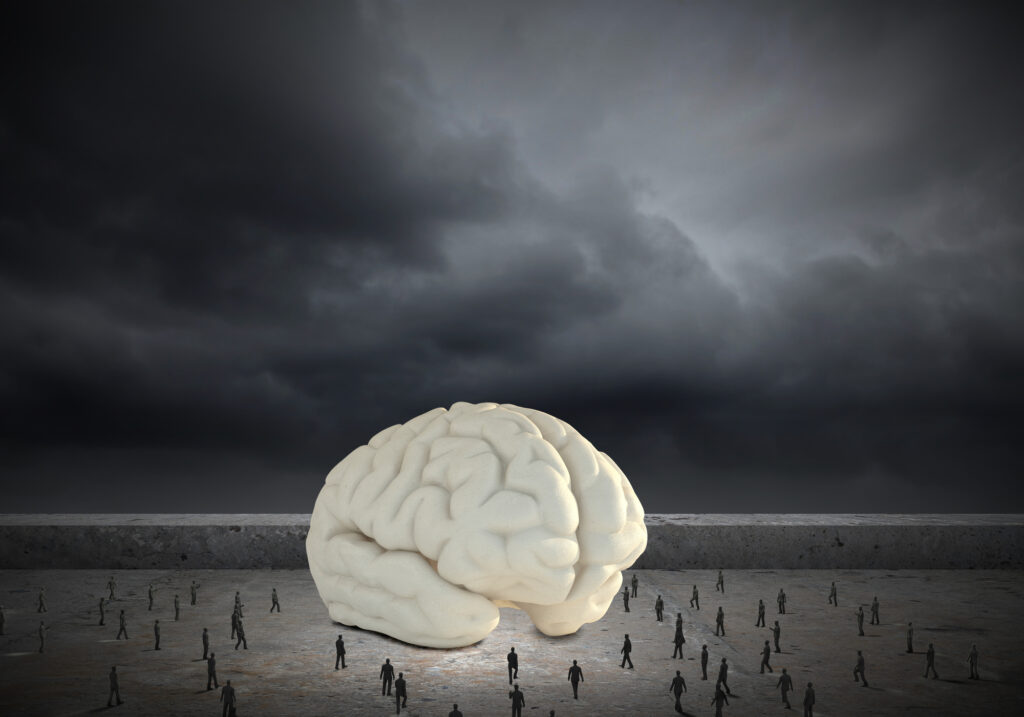In a new editorial, the editors of the leading medical journal, The Lancet, argue that an integrative, holistic approach that more fully accounts for the social determinants of mental illness is necessary to advance the field of psychiatry.
The editors highlight new leaders in American psychiatry who support this approach but caution that many psychiatrists in the United States are still wedded to the biomedical model. They suggest that this discrepancy may be due, at least in part, to the fact that, within current healthcare systems, it is infinitely easier to prescribe a medication than it is to address social problems like unemployment, racism, and lack of safe housing.
The authors ask that professionals in the psy-disciplines acknowledge the often-neglected social determinants of mental illness and urge governments and clinicians to do more in addressing them.
“Services for and solutions to unemployment, housing problems, financial worries,” they write, “must be made universally available, along with the provision of healthy diets and physical activity, in a holistic, integrated care service. Governments must do better. And the clinician, facing patients repeatedly attending with poor brain health … has a duty of care to demand such measures; without them, suffering will continue.”
 Past research has established the power of social determinants of mental health. From depression to psychosis, issues such as racism, discrimination, access to housing and other resources, etc., seem to play a massive role in our overall mental well-being. Recent research during Covid-19 has bolstered these conclusions, finding that social inequalities drive mental distress amid the pandemic and intensify the adverse effects of Covid-19.
Past research has established the power of social determinants of mental health. From depression to psychosis, issues such as racism, discrimination, access to housing and other resources, etc., seem to play a massive role in our overall mental well-being. Recent research during Covid-19 has bolstered these conclusions, finding that social inequalities drive mental distress amid the pandemic and intensify the adverse effects of Covid-19.
The authors are not alone in their call for psy-professionals to emphasize social determinants of mental health. Researchers have suggested that psychiatrists should better utilize the International Classification of Diseases (ICD) guidance to contextualize psychological suffering within social determinants of health. Rather than diagnosing pathological distress as a disorder within the individual, these authors contend that we should diagnose and treat social adversity within our societies.
The holistic approach, utilizing both bio-medical and social determinant models of mental health, has become increasingly popular within the psy-disciplines. Holistic approaches have been shown to effectively treat psychotropic drug withdrawal, anxiety, and depression, sometimes outperforming bio-medical centered treatment. Research has also shown improvement in therapeutic outcomes when psychodynamic, and cognitive-behavioral approaches are combined.
The editorial begins by pointing to a statement made by Vivian Pender (current American Psychiatric Association President), in which she urges her colleagues to be more mindful of the social determinants of mental illness. While the authors agree with her statement, they are cautious about whether or not the discipline will take this advice or if this represents another “swing of the pendulum” that will ultimately produce no fundamental changes.
The authors give Pender’s creation of an APA task force to address social determinants of mental health as evidence that there is a problem with the way most psychiatrists (in America) are thinking about this problem. Of course, if the discipline were genuinely sold on the importance of social determinants, such a task force would not be necessary.
Although caution is the prevailing attitude, the editors do give some reasons to be optimistic about American psychiatry taking social determinants of mental health more seriously.
The authors cite mounting evidence that poverty, childhood adversity, and violence represent significant risk factors for mental disorders (as represented by The Lancet’s Commission on global mental health) as well as the shift in focus towards environmental factors of health during the Covid-19 pandemic as driving factors in legitimizing social determinants of mental health in the psychiatric literature.
The authors call for the adoption of the inherently holistic idea of “brain health” to satisfy various bickering factions within psychiatry. The World Health Organization defines “brain health” as:
“A state in which every individual can optimize their cognitive, emotional, psychological, and behavioral functioning; not merely the absence of disease.”
With this definition, the authors argue that many disparate factions could be brought together without having to undo each group’s underlying (sometimes mutually exclusive) assumptions.
Ultimately, the authors argue that the psy-disciplines, and society as a whole, do not currently do enough to address the social determinants of mental illness. For example, countries are not doing enough to tackle issues of poverty and racism, and our communities are not doing enough to address economic disparities and cultural differences.
The solution to these issues would be for governments to prioritize addressing well-known social determinants of mental health (like poverty, racism, and violence) and psy-professionals to administer holistic interventions at developmentally appropriate times to avoid long-term mental health issues.
****
The Lancet. (2021). Brain health and its social determinants. The Lancet, 398(10305), 1021. https://doi.org/10.1016/s0140-6736(21)02085-7 (Link)















Given the track record of “professionals” in this field, I would be suspicious.
Though a global welfare state would in theory reduce individual suffering, it would also result in these “professionals” being better-paid in many locations where today they struggle to compete with traditional medicine and other approaches that may, in fact, be more workable.
I can’t believe they want much more than a more secure position for themselves in a future world where the general population starts to turn against the widespread use of drugs to “cure” everything.
These folks are always trying to think ahead and anticipate the next cool way to convince us they still know what they are talking about, and thus save their sorry asses from being abandoned as a worthless bunch of quacks.
If they really believed in personal and societal health, they would also be talking about the spiritual aspects of health, and not simply advocating for global health insurance.
Report comment
Sounds like “another ‘swing of the pendulum’ that will ultimately produce no fundamental changes” to me.
Report comment